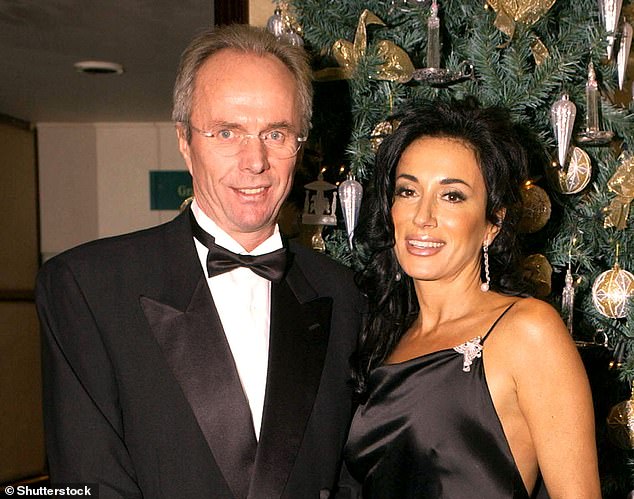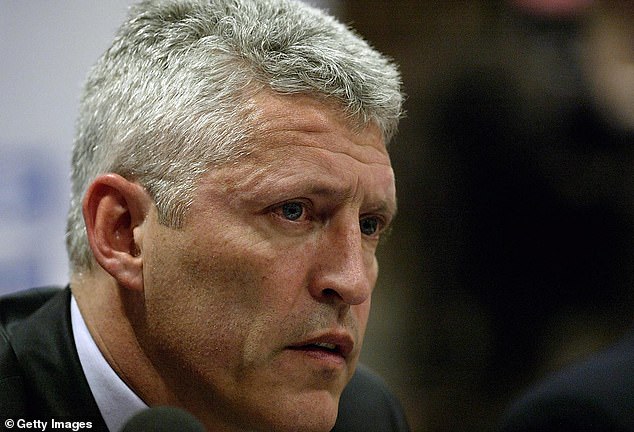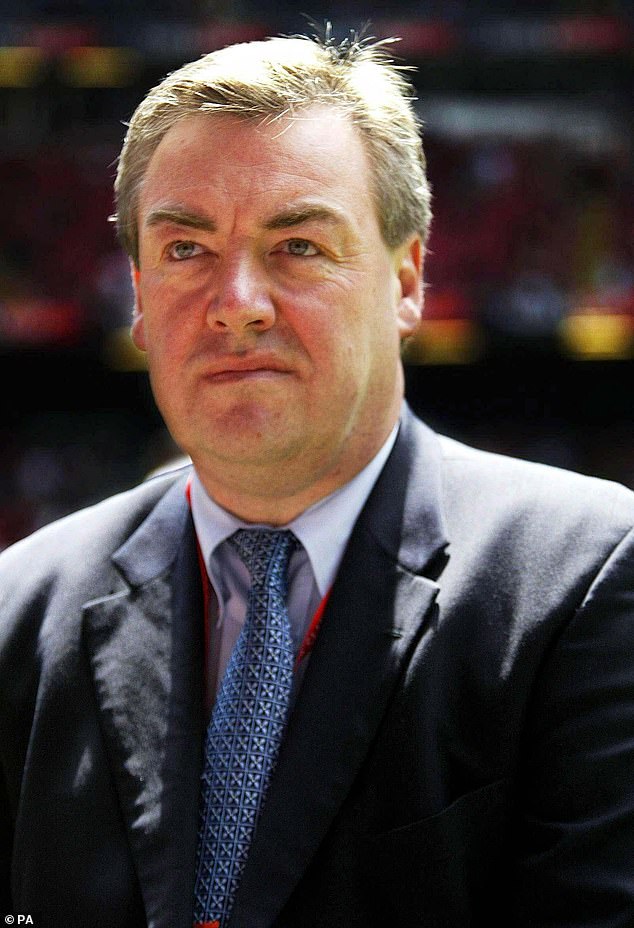Sven-Goran Eriksson names the England colleague who he ‘always thought was a piece of s***’ over his affairs scandal in new book to be published after his death
Sven-Goran Eriksson has criticised a former colleague at the English Football Association over his affair scandal in a new book, due to be published following the death of the legendary former England manager.
Eriksson, who tragically passed away last month due to cancer, managed the Three Lions from 2001 to 2006.
It was part of a glittering coaching career for the Swede, but his time with England was overshadowed by scandalous headlines about his love life.
Eriksson was in a relationship with Nancy Dell’Olio, but during that time had affairs with Ulrika Jonsson and Faria Alam, before splitting from Dell’Olio in 2007.
His romance with Alam was more notable, as she was the FA secretary at the time. Great efforts were made to keep the romance secret before it became public in August 2004.
Sven-Goran Eriksson has attacked a former FA colleague over his affair scandal in a new book to be published following the legendary former England manager’s death

Eriksson was in a relationship with Nancy Dell’Olio while he was England manager, but his time there was marked by several scandalous allegations surrounding his love life

Eriksson’s most high profile affair was with Faria Alam, who was the FA secretary at the time

Eriksson also had a romance with TV presenter Ulrika Jonsson when he was England manager
In response, the FA’s communications director Colin Gibson advised Eriksson to do an interview with former tabloid newspaper News of the World to discuss his relationship with Alam.
Because the FA’s then chief executive, Mark Palios, had previously had an affair with Alam – something that was not yet publicly known – Eriksson was told by Gibson that Palios’ name could not be mentioned in the interview.
And Eriksson, in the yet-to-be-released “A Wonderful Journey,” expressed his anger at Gibson for essentially abandoning him.
“I would sacrifice myself to save Mark Palios’ skin,” Eriksson said. “I told Colin Gibson he was a piece of shit, and I always thought that.
“He knew we were never going to get along. Ultimately, both Gibson and Palios had to resign, Gibson for trying to cover up Mark Palios’ role in this affair.”
Palios was forced to resign after it emerged in the media that he had been in a relationship with Alam.
Still, Eriksson admitted that despite the fuss, he felt he had done nothing wrong. He did speak out about the pain the news caused by entering the public domain.
“The paparazzi photographers never took pictures of me and Faria Alam,” he added.
‘I was very careful, we never met at her house or at my place. But the press started digging, friends of hers got in touch. Someone knew, someone was gossiping. I suspected it was Faria herself and I felt betrayed and cursed.
‘I’ve often been asked if I regret meeting Faria Alam and Ulrika Jonsson. Well, if I had known what would come of it, I might have called it off.
“But morally I don’t get it. Shouldn’t I, just because I was national coach, be able to meet and have a relationship with whoever I want?”

Mark Palios, then chief executive of the FA, had also had an affair with Alam

The FA’s director of communications Colin Gibson had told Eriksson not to mention Palios by name in his interview, leading to the Swede calling Gibson a “piece of shit”
In addition to his time as manager of England, where he was the first foreign manager to manage the Three Lions, Eriksson enjoyed a very successful coaching career, managing clubs such as Benfica, Lazio, Man City and Roma.
Yet, despite leading what was called the ‘Golden Generation’, he was unable to lead the Three Lions to victory.
In the 2002 and 2006 World Cups, and the 2004 European Championship, England were eliminated in the quarter-finals. Eriksson struggled to put together a successful team, while there was much dissension within the selection.
Despite this, Eriksson won 40 of the 67 matches he played as national coach and went on to play for Mexico, Ivory Coast and the Philippines.
Despite his lack of success with the Three Lions, he remained hugely popular in the UK, later becoming manager of Man City and Leicester, and receiving much love and support after being diagnosed with terminal cancer.
